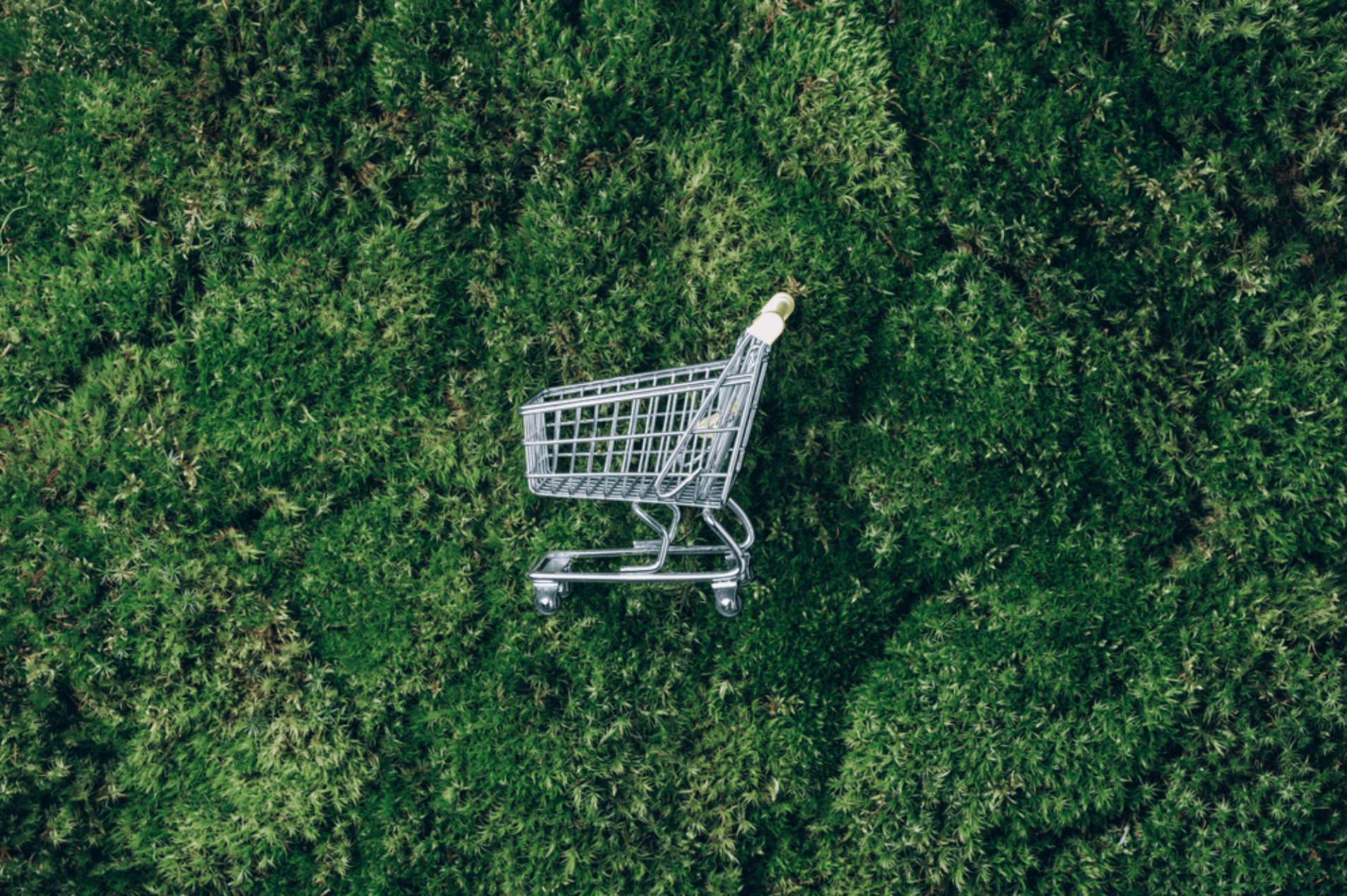Embracing sustainability: How brands are responding to eco-conscious consumer demands

Sustainability
As consumer awareness grows, brands must adapt their strategies and innovate sustainable solutions that align with eco-conscious values, ensuring a balance between luxury and environmental responsibility.
As the dialogue around sustainability intensifies, brands are increasingly recognising the need to adapt to eco-conscious consumer expectations. Today's consumers are not just passive recipients of products; they are informed, engaged, and expect brands to reflect their values, particularly when it comes to environmental responsibility.

At London Packaging Week, a panel discussion featuring industry leaders Cory Connors, Director of Sustainable Packaging at Orora Packaging Solutions; Michelle Atkinson, Senior Global Breakthrough Innovation Lead - Sustainable Solutions at Diageo; and Sarah Flower, Senior Product Manager – Luxury Packaging & Technical Solutions at Fedrigoni, presented insights on how brands can align their offerings with the evolving demands of eco-aware consumers.
Understanding the eco-conscious consumer
To effectively cater to eco-conscious consumers, brands must first understand their motivations and behaviours. Atkinson acknowledges that consumers are now more aware than ever of climate change and its implications. “Consumers care about the planet, they care about climate change, and they want to be more sustainable in the way they live, but there’s a gap between what they say they want and what they actually purchase,” she said. “In the drinks industry, we’ve seen that while 68% of consumers express a desire to buy sustainable products, only 12% do so.”
This discrepancy raises important questions for brands, specifically ‘what prevents consumers from following through on their intentions?’ One significant barrier is the overwhelming array of choices available in the marketplace. For many consumers, the sheer volume of options can lead to decision fatigue, making it challenging to prioritise sustainability amidst a myriad of factors such as price, convenience, and brand loyalty. Underscoring the need for brands to ensure that sustainability does not come at the expense of quality or enjoyment, Atkinson added “When enjoying a gin and tonic with friends on a Friday evening after a long week, nobody wants to risk compromising that experience.”
Atkinson suggested that the onus is on the industry to create sustainable products that enhance rather than detract from the consumer experience. “We must step up and create these sustainable products that are still luxurious and don’t compromise the consumer experience,” she explained. This highlights the dual challenge facing brands: they must not only innovate sustainable options but also ensure these products resonate with consumers' expectations for luxury and quality.

The importance of clear communication
Effective communication is pivotal in bridging the gap between consumer intentions and actions. Atkinson raised the issue of how brands communicate their sustainability efforts, noting that clarity is essential. “We must ensure that our packaging reflects our sustainable efforts clearly and that consumers understand what they are purchasing,” she asserted. The challenge, however, lies in the diverse regulations governing sustainability messaging across different markets.
Connors highlighted the clutter of symbols often found on packaging, which can confuse consumers rather than aid them. “During an event last year, a poll asked consumers about 27 different packaging symbols, and the only one they recognised was the chasing arrow. We have these symbols now which are on packaging because people assume they will mean something to somebody but actually all it does is create a lot of noise,” he recalled. This lack of recognition illustrates the urgent need for standardisation in sustainability messaging. “We’re hoping that standardisation becomes a norm in the industry,” Connors stated, advocating for clear and consistent communication that empowers consumers to make informed choices.
“Regional variations in consumer expectations mean we must tailor our messaging accordingly,” Atkinson noted, indicating that the nuances of sustainability may resonate differently depending on where a product is sold. For instance, while European consumers may be more familiar with specific sustainability symbols, American consumers might be less aware of the implications of certain materials. This inconsistency calls for a careful, targeted approach in educating consumers about what makes a product sustainable.
The role of consumer feedback cannot be understated in the development of sustainable products. The panellists shared insights on how engaging consumers in the product development process has become an essential aspect of innovation. Atkinson recounted Diageo’s trial of a paper bottle for Baileys, which was produced using dry mould fibre and included a thin PET liner. The bottle received a commendable score of 8.1 out of 10 for likability from consumers during feedback sessions. “At Diageo, we classify 8.1 as excellent, so we were absolutely delighted with the feedback. But one of the learnings from the trial was that it was apparent that consumers are looking for clearer information on what makes this bottle a sustainable option,” Atkinson observed, highlighting the need for ongoing dialogue with consumers as products evolve. By incorporating consumer insights, brands can better align their products with expectations and preferences, thereby fostering stronger connections with their audience.
Flower reinforced the importance of consumer feedback in shaping product development. “It’s not just about creating a product that’s sustainable; it’s about ensuring it meets consumer needs and expectations,” she stated. By actively seeking out and responding to consumer opinions, brands can develop more effective and appealing sustainable solutions.

Progress over perfection: A journey towards sustainability
One of the recurring themes throughout the discussion was the understanding that the journey toward sustainability is ongoing. Atkinson articulated this perfectly by saying, “It’s the first step on a much bigger journey.” The industry must recognise that achieving sustainability is not a destination but rather a continuous process of improvement.
Reflecting on the luxury market, Flower said “we’ve been looking to eliminate microplastics going forward and talked a lot about progress over perfection. It is our way of trying to get one step ahead of the game,” underscoring that incremental improvements are crucial as the industry moves toward greater sustainability. This approach allows brands to celebrate their achievements while remaining committed to ongoing innovation and refinement.
Flower also noted the importance of a long-term perspective. “Sustainability underpins everything we do, and we are trying to develop products from the very outset that are designed to be circular,” she asserted. This reflects a fundamental shift in thinking about product lifecycle and materials, as brands aim to create solutions that are not only sustainable but also capable of being reused or recycled. Innovation in materials is central to meeting eco-conscious consumer expectations. The luxury packaging sector has witnessed a notable shift toward alternative materials, particularly in response to consumer demand for reduced plastic usage. Flower discussed Fedrigoni’s commitment to developing paper-based packaging solutions as part of this trend. “We recognise that single-use plastics have devastating lifespans that far exceed their utility, and we must do better,” she explained.
The development of paper products with water-resistant and anti-scratch properties is one example of how technology is evolving to meet market demands. “We’re committed to developing solutions that enhance functionality while reducing environmental impact and we are keen to collaborate with brands to create innovative solutions,” Flower stated. Connors echoed this focus on innovation, highlighting the growing array of sustainable materials available to brands. “The future will see us exploring new options that align with our commitment to luxury while reducing our environmental footprint,” he affirmed.
Collaboration across the industry is essential to fostering a culture of sustainability and driving meaningful change. Atkinson pointed out that this collaboration must occur at multiple levels, particularly within organisations where cross-functional teams can work together towards common sustainability goals. “We work cross-functionally with legal, regulatory, and R&D teams to ensure our innovations are viable and meet consumer needs,” she explained. Flower concurred, stressing that creating awareness of sustainability within organisations is critical. “If we are to achieve meaningful change, we need everyone to understand their role in this journey,” she stated. This collaborative mindset can help brands harness collective expertise to innovate and implement sustainable solutions more effectively.
Another vital aspect of aligning with eco-conscious consumers is education as many consumers today are eager to learn about sustainability and the implications of their purchasing decisions. However, there remains a knowledge gap that brands must address. “Many people may not be aware of the gravity of our environmental situation,” Flower pointed out.
Brands have a unique opportunity to educate consumers about the impact of their choices, empowering them to make informed decisions. Connors underscored the importance of this educational role, stating, “It’s crucial for brands to engage consumers in a dialogue about sustainability, helping them understand the benefits of choosing eco-friendly options.” Atkinson added that transparency is key, “Consumers are increasingly demanding to know the story behind the products they buy, and brands must be prepared to share that story,” she stated. This transparency can foster trust and loyalty, encouraging consumers to support brands that align with their values.

The economic case for sustainability
While sustainability is often framed as a moral imperative, it is increasingly being recognised as an economic opportunity. The panellists discussed the shifting landscape of consumer preferences, where sustainability is becoming a crucial factor in purchasing decisions. “Our commitment to sustainability is not just about compliance; it’s about leading the way in creating a better future for our consumers and the planet,” Atkinson affirmed. As brands adopt sustainable practices, they can also tap into new markets and attract a growing demographic of eco-conscious consumers.
“Sustainability is becoming a key differentiator in the marketplace,” Connors noted. “Brands that prioritise sustainability are likely to find themselves ahead of the curve, appealing to consumers who are willing to pay a premium for eco-friendly options.” Flower echoed this sentiment, highlighting that as consumer preferences shift, brands that fail to adapt risk being left behind. “It’s not just about meeting current consumer expectations; it’s about anticipating future trends and staying relevant,” she stated.
The future of sustainable luxury packaging appears a place to be optimistic about but realistic in terms of the challenges yet to be overcome. Connors expressed his enthusiasm for the ongoing innovations in the sector. “It’s an exciting time to be focused on sustainable packaging. The future will be sustainable, whether we like it or not,” he affirmed, emphasising the industry’s need to embrace this transformation fully. Atkinson shared a similar sense of hope, noting that brands must continuously adapt and innovate to meet the expectations of today’s eco-conscious consumers. “We are all noticing that our packaging is evolving to become less reliant on traditional materials,” she remarked, reflecting the broader shift toward sustainability within the industry. Flower added, “with emerging technologies and a commitment to circularity, the future of luxury packaging is not just about aesthetics but also about responsibility.” This perspective encapsulates the essence of the conversation: the path forward lies in a balanced approach that harmonises luxury with environmental stewardship.
The insights shared by Cory Connors, Michelle Atkinson, and Sarah Flower at London Packaging Week highlight a pivotal moment in the luxury packaging industry, where consumer expectations are driving significant changes. As eco-conscious consumers become increasingly influential, brands must adapt their offerings and communication strategies to align with these evolving demands. By prioritising clear communication, engaging in consumer feedback, and fostering collaboration across the industry, brands can create sustainable luxury packaging solutions that resonate with today’s discerning consumers.
The journey toward sustainable luxury packaging may be challenging, but with commitment and innovation, brands can not only meet but exceed the expectations of eco-conscious consumers, paving the way for a more sustainable future. In a world where sustainability is no longer a niche concern but a mainstream expectation, the luxury packaging sector is at a crossroads. By embracing the principles of sustainability and aligning their strategies with consumer values, brands can navigate this transformation and emerge as leaders in the new era of eco-conscious consumption.
Luxury is evolving—sustainability and innovation are shaping its future. Discover key insights from industry leaders at London Packaging Week and explore the latest packaging innovations. Learn more here.
Related News
-
Events
Easyfairs UK brings Packaging Innovations to the masses
-
Events
London Packaging Week unveils judging panel for 2025 Innovation Awards
-
Business
Easyfairs UK announces launch of Easyfairs Packaging Council
-
Events
London Packaging Week to spotlight the future of packaging as Innovation Awards 2025 open
-
Events
London Packaging Week offers free access to entire conference agenda




